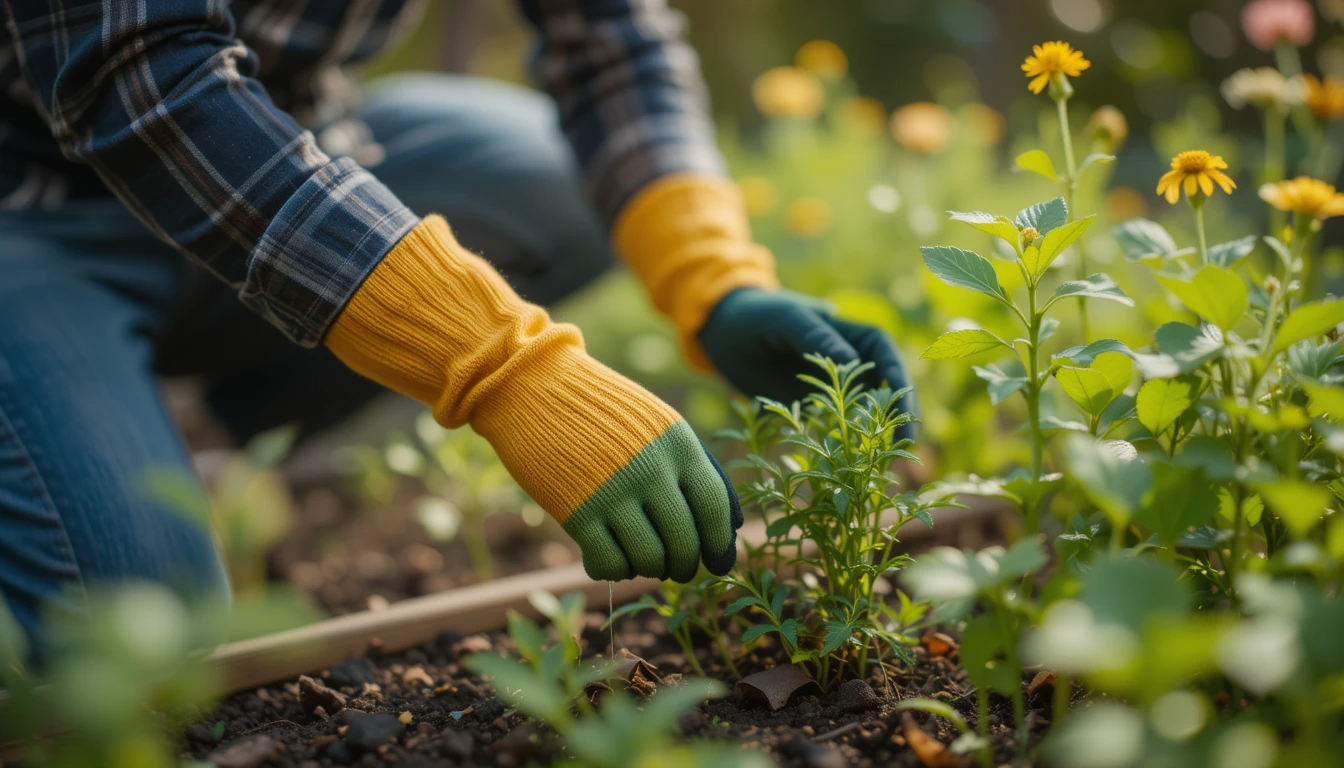Gardening is not just a hobby; it’s a rewarding experience that lets you grow healthy, delicious vegetables right in your backyard. If you’re committed to going organic, you’re making a fantastic choice for the environment, your health, and the taste of your produce. However, choosing the right organic fertilizer for your vegetables can be a bit overwhelming. With so many options out there, how do you know which one will help your vegetables thrive? Let’s break down everything you need to know to select the perfect organic fertilizer for your garden.
Understanding Organic Fertilizers
Organic fertilizers are made from natural substances—usually plant, animal, or mineral-based materials. Unlike synthetic fertilizers, which are chemically produced, organic fertilizers help build soil health while feeding your plants. They encourage beneficial soil organisms, improve soil structure, and provide nutrients that are gradually released over time, ensuring your vegetables have the nutrition they need throughout the growing season.
The main nutrients your vegetables require are nitrogen (N), phosphorus (P), and potassium (K), often referred to as N-P-K. Each of these nutrients has a specific role: nitrogen promotes leafy growth, phosphorus encourages root development and fruit production, and potassium helps plants withstand stress and disease. Understanding these nutrients can help you make an informed decision on what to apply to your vegetable beds.
Know Your Soil
Before choosing an organic fertilizer, you need to know what your soil needs. Testing your soil is an easy and effective way to determine its nutrient content, pH level, and other characteristics. You can purchase a simple soil test kit from Amazon, such as the Luster Leaf 1601 Rapitest Soil Test Kit, which has received great reviews and can help you identify nutrient deficiencies in your garden. Soil tests will give you a good idea of whether you need more nitrogen, phosphorus, or potassium—or maybe a mix of all three!
Types of Organic Fertilizers
There are several types of organic fertilizers available, each with its own strengths. Let’s dive into the most common ones so you can decide which is best for your vegetables.
1. Compost
Compost is a gardener’s best friend. It’s rich in nutrients and helps improve soil structure. Compost is perfect for almost any type of vegetable because it provides a balanced mix of nutrients and beneficial microbes. If you haven’t started a compost pile yet, consider getting a compost bin like the FCMP Outdoor IM4000 Tumbling Composter. It has over 10,000 positive reviews on Amazon and makes composting easy and efficient. You can also purchase pre-made compost, such as Charlie’s Compost, which is a popular option among organic gardeners.
2. Manure
Manure is another excellent source of nutrients. Cow, horse, chicken, and even rabbit manure can be used, but it needs to be aged or composted before adding it to your garden—fresh manure can be too strong and may burn your plants. Aged manure provides a slow-release source of nitrogen, making it especially great for leafy vegetables like lettuce, kale, and spinach. You can find bagged composted manure on Amazon; Black Kow Composted Cow Manure is a well-known choice that many gardeners swear by.
3. Fish Emulsion
Fish emulsion is a fast-acting liquid fertilizer that’s high in nitrogen. It’s perfect for vegetables that require a lot of leafy growth, such as spinach or cabbage. One of the popular brands available on Amazon is Alaska Fish Fertilizer 5-1-1. It’s easy to apply, just dilute it in water and pour it around the base of your plants. Fish emulsion is also great if you need a quick boost for your vegetables, but keep in mind that it has a somewhat strong smell.
4. Bone Meal
Bone meal is made from ground animal bones and is rich in phosphorus, which is essential for root and fruit development. If you’re growing root crops like carrots, beets, or radishes, or fruiting vegetables like tomatoes, bone meal can be very helpful. A highly rated product you can try is Down to Earth Organic Bone Meal Fertilizer 3-15-0. This is easy to sprinkle around your plants and will provide them with the phosphorus they need to produce healthy roots and abundant fruits.
5. Blood Meal
Blood meal is another organic fertilizer that is high in nitrogen, and it’s perfect for vegetables that need a lot of leafy growth. It’s made from dried animal blood and provides a quick nitrogen boost. Down to Earth Blood Meal 12-0-0 is a popular choice available on Amazon. Just be careful when using blood meal—too much nitrogen can lead to lots of leafy growth but poor fruit and flower production.
6. Kelp Meal and Seaweed Extract
Kelp meal and seaweed extracts are fantastic for providing micronutrients and improving overall plant health. They help plants handle stress from drought, pests, or diseases. Liquid Kelp Organic Seaweed Extract is a well-loved product on Amazon that you can use to enhance plant resilience and improve yields. It’s not necessarily a primary fertilizer but rather a supplement that can work wonders when combined with other organic fertilizers.
7. Worm Castings
Worm castings are the byproduct of composting worms and are often considered one of the best organic fertilizers. They’re rich in beneficial microbes and nutrients, making them perfect for all vegetables. Unco Industries Wiggle Worm Soil Builder Earthworm Castings are a top-rated product that you can find on Amazon. They’re gentle enough to use at any stage of plant growth and can be mixed directly into your soil or added as a top dressing.
Choosing Fertilizers Based on Vegetable Needs
Different vegetables have different nutritional needs. Let’s take a look at some popular vegetables and the best organic fertilizers for each:
- Leafy Greens (Spinach, Kale, Lettuce): Leafy greens need plenty of nitrogen to produce lush foliage. Compost, manure, and fish emulsion are great options. You could also add a bit of blood meal for a nitrogen boost.
- Root Vegetables (Carrots, Beets, Radishes): Root crops need phosphorus for strong root development. Bone meal is an excellent choice, along with compost. Worm castings also work well to provide gentle, balanced nutrition.
- Fruiting Vegetables (Tomatoes, Peppers, Eggplants): Fruiting vegetables require a balanced supply of nutrients but especially need phosphorus and potassium to encourage blooms and fruit set. Consider using bone meal and kelp meal in addition to compost. Fish emulsion can be used early in the season for leafy growth, but reduce it once flowering starts.
- Legumes (Beans, Peas): Legumes are unique because they fix nitrogen from the air into the soil. They don’t need much nitrogen, but they do benefit from phosphorus and potassium. Compost and kelp meal are good choices to keep legumes happy.
Organic Fertilizer Application Tips
Once you’ve chosen your organic fertilizers, it’s essential to know how to apply them correctly. Here are some tips for using these fertilizers effectively:
- Timing: Apply fertilizer when your plants are actively growing. For most vegetables, this means adding compost or manure before planting and supplementing with other fertilizers throughout the growing season.
- Frequency: Organic fertilizers release nutrients slowly, so you may need to reapply every few weeks, depending on the fertilizer type. Liquid fertilizers like fish emulsion can be applied more frequently (every 2-4 weeks), while slow-release options like bone meal may only need one or two applications.
- Avoid Over-Fertilizing: More isn’t always better. Over-fertilizing can harm your plants, especially with nitrogen-rich fertilizers like blood meal or fish emulsion. Follow the instructions on the product packaging and keep an eye on your plants—yellowing leaves can indicate too little nitrogen, while dark, lush foliage with no flowers can mean too much.
- Use Mulch: After fertilizing, consider adding a layer of organic mulch, such as straw or shredded leaves, around your plants. Mulch helps retain moisture, keeps the soil temperature stable, and gradually adds organic matter as it breaks down.
Organic Fertilizer Product Recommendations
If you’re ready to start shopping for organic fertilizers, here are some highly-rated products available on Amazon that other gardeners love:
- Luster Leaf 1601 Rapitest Soil Test Kit – A simple, reliable soil test kit to help you determine your soil’s needs.
- FCMP Outdoor IM4000 Tumbling Composter – An easy-to-use composter for making your own rich, organic compost.
- Alaska Fish Fertilizer 5-1-1 – A fast-acting liquid fertilizer for leafy vegetables.
- Down to Earth Organic Bone Meal Fertilizer 3-15-0 – Perfect for promoting root and flower growth.
- Liquid Kelp Organic Seaweed Extract – A great way to boost plant resilience and overall health.
- Unco Industries Wiggle Worm Soil Builder Earthworm Castings – A gentle, nutrient-rich option for all types of vegetables.
The Benefits of Organic Fertilizers
Choosing organic fertilizers isn’t just about feeding your vegetables; it’s about nurturing the soil. Healthy soil is full of life—microorganisms, worms, and other beneficial creatures that keep your garden thriving. Organic fertilizers contribute to this natural ecosystem, promoting long-term soil health rather than just providing a quick nutrient fix. By choosing organic, you’re creating a sustainable environment that will yield healthy, delicious vegetables for years to come.
Final Thoughts
Selecting the right organic fertilizer for your vegetable garden doesn’t have to be complicated. By understanding your soil’s needs and choosing the appropriate fertilizer for your crops, you can create a thriving, productive garden. Whether you’re using compost, fish emulsion, bone meal, or a mix of everything, your vegetables will benefit from the natural, slow-release nutrients that organic fertilizers provide.
Gardening is a journey, and like any journey, it takes time and experimentation. Don’t be afraid to try different organic fertilizers and see how your vegetables respond. With patience and care, you’ll be rewarded with a bountiful harvest of healthy, homegrown vegetables that you can feel proud of. Happy gardening!
If you’re interested in any of the products mentioned above, they are all readily available on Amazon with great reviews from fellow gardeners. Check them out and take your organic vegetable garden to the next level!
This website contains affiliate links, meaning I may earn a commission if you click through and make a purchase, this is at no additional cost to you. I only recommend products and services I genuinely believe in.

